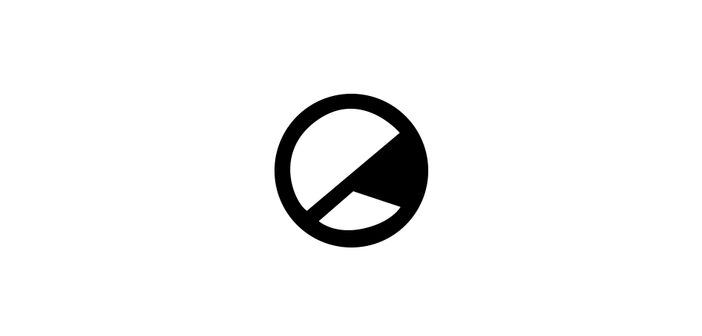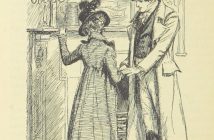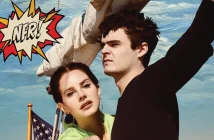One’s music is often seen as an extension or showcase of one’s self from a lyrical perspective. Music is a medium through which artists and lyricists convey their inner most thoughts and feelings; sometimes through deep metaphors and allegories, sometimes through confessional and blunt catharsis. For a long time emotion and psychology has been common in music; from Don McClean’s 1971 magnum opus ‘American Pie’, to Aimee Mann and Mount Eerie’s recent releases (titled Mental Illness and A Crow Looked At Me respectively), it’s hard to think of a time when music hasn’t ever been a powerful form of conveying emotions.
There is one genre of music that has been synonymous with emotion and, more particularly, mental health, but unfortunately it’s one that has been stigmatised and ridiculed over the years despite its social relevance. The genre is question: Emo music. Stemming from the punk and grunge scenes, emo was rock’s most popular and divisive genre at its height in the 2000s, but has since seen a decline in popularity. However, there has been something of a resurgence in the genre in recent years and now emo music is as important and relevant as ever, despite whatever labels and criticisms naysayers and cynics may throw its way.
Throughout the ’00s, emo music found itself stigmatised as a genre; stereotyped with skinny jeans, studs, wristbands and eccentric hairstyles as a look, and then self harm, depression and suicide as a personal assessment of those who wrote and listened to the genre (lets not forget the horrific claims of both The Sun and Daily Mail towards My Chemical Romance). From a musical perspective, it stemmed from pop-punk influences leading to bands such as Paramore, Fall Out Boy and the aforementioned My Chemical Romance being identified as emo. Their music often spoke of relationships, hopes, loss and grief and the genre garnered a huge fanbase. But it faded away in the late-’00s/early- 2010s as these bands became, arguably, more commercialised and the lyrical content was watered down. Just compare My Chemical Romance’s back to back albums of The Black Parade (probably the biggest emo album of all time), and Danger Days; the latter still packed emotion but paled in comparison to what The Black Parade did.
But it’s the new wave of emo that needs to be focused on here. Bands such as Modern Baseball, Sorority Noise, The Hotelier and The World Is a Beautiful Place & I Am No Longer Afraid to Die centre a lot of their lyrical content on mental health. Just last year Modern Baseball released one of the year’s most important albums in Holy Ghost as it tackled two sides of mental health; loss, grief and a searching for answers on one side, and depression and bi-polar disorder on the other. It was cathartic, heartfelt and, most importantly, genuine. This was music that cut right to the core, stripped away of all pretentiousness and theatrics, the lyrics were human and honest, endearing fans and being instantly relatable.
modern baseball's "just another face" is the most important song i heard in 2016 but is also one of the most important songs i'll ever hear
— maria sherman (@mariasherm) December 23, 2016
The lyrics of these bands are thoughtful and thought-provoking, they tackle mental health in an explicit yet also rather indirect and subtle way. This new generation of emo music is notably much more mature; where the ’00s iteration bemoaned the lack of love or girls liking you, this new generation focuses on much more serious and widespread personal issues that effect mental health. It’s music that is above all, relevant. Clothed in indie and punk rock instrumentals, it’s music that will sneak up on you and catch you off guard; once it’s got you, it won’t let go and everything else will feel shallow and vapid in comparison.
As mentioned, the earlier form of emo was commonly related to pop-punk and grew from the genre itself. Whilst these bands have altered their sound and lyrical content, contemporary pop-punk is becoming much more concerned with mental health. The pop-punk band The Wonder Years are perhaps the most significant example of this, with each of their albums tackling mental health in different ways; 2010’s The Upsides took an “I’m not sad anymore” approach as a statement against feeling beaten up by life in your early 20s, 2011’s Suburbia I’ve Given You All and Now I’m Nothing was an examination of growing up in the American suburbs and finding yourself, 2013’s The Greatest Generation was all about a fear of the future and how it could cripple you, (but also seeing that this generation can be the so-called “greatest generation” and pave the way), and finally 2015’s No Closer to Heaven took a conceptual approach about the loss of a loved one. It’s powerful stuff that has transcended any label of pop-punk or emo and is just damn fine music with an incredible message. Other bands such as Real Friends, Have Mercy and even the aforementioned Modern Baseball incorporate elements of pop-punk into their music and sing about mental health in deeply moving ways. A genre that was once deemed immature and juvenile has finally come of age.
Ultimately, the emo stigma is slowly being peeled away and people are seeing the music for what it is; deeply relevant and strikingly relatable. Seemingly gone is the negativity and imagery that plagued the genre for so long, now it’s a movement that’s taking over again but this time with the right messages and the important themes. Emo is cool again but more importantly, emo is necessary.






